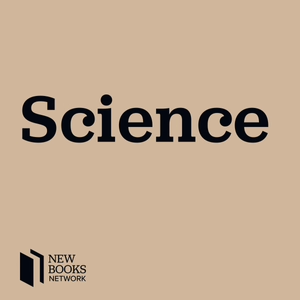
From ragweed to dust mites: we navigate the sneezes and wheezes of allergies
02/16/23 • 12 min
As part of this issue of MEDICUS’ wider focus on how the environment affects health, the MEDICUS team is taking a deeper look into what’s going on when the body perceives things from the environment as a threat. We’re, of course, talking about allergies. And joining us on this episode are:
- Our special, preteen guest co-host Juno Young, who had a million questions about allergies
- And immunologist Ashley St John, an associate professor at Duke-NUS who leads the laboratory of immunity and immune pathology
This episode was produced by Nicole Lim, senior editor at Duke-NUS for MEDICUS.
To discover more scientific insights and personal stories from Singapore with impact on the world, go to: www.duke-nus.edu.sg/medicus
As part of this issue of MEDICUS’ wider focus on how the environment affects health, the MEDICUS team is taking a deeper look into what’s going on when the body perceives things from the environment as a threat. We’re, of course, talking about allergies. And joining us on this episode are:
- Our special, preteen guest co-host Juno Young, who had a million questions about allergies
- And immunologist Ashley St John, an associate professor at Duke-NUS who leads the laboratory of immunity and immune pathology
This episode was produced by Nicole Lim, senior editor at Duke-NUS for MEDICUS.
To discover more scientific insights and personal stories from Singapore with impact on the world, go to: www.duke-nus.edu.sg/medicus
Previous Episode

Sleeping your way to better health
“Only sleep when dead.” That’s the rationale that tribes of people, from party animals to early morning exercise devotees, have used to explain their sleep habits. But we may be putting more at stake than we realise when we regularly cut our Zs short because sleep is not just a black hole of downtime. Most adults need about seven to nine hours of sleep a night for optimal performance and health—six if you are among those who really don’t need much shut eye.
So, in this episode of MEDICUS – the Podcast, we explore the science behind good sleep, what goes on when we are sleeping and the hidden cost of cutting corners.
We also get some handy tips and strategies to help improve our sleep routine and deal with jetlag.
We’re discussing all this with:
Associate Professor Joshua Gooley, who leads the chronobiology and sleep lab at Duke-NUS
Ms Hana Yabuki, a research assistant in Gooley’s lab who sometimes sacrifices her sleep to study the state we spend a third of our lives in
Liked this episode? Check out our other ones, in which we explore topics including how to die a good death, what mosquitoes have to teach us when it comes to finding effective vaccines and treatments for diseases like dengue and Zika or how we can stay a step ahead of the next deadly virus outbreak. And so much more!
To discover more scientific insights and personal stories from Singapore with impact on the world, go to: www.duke-nus.edu.sg/medicus
Next Episode

Fishing for telomeres: two scientists are measuring how fast our biological clocks tick
In this episode of MEDICUS – the Podcast, we meet two scientists to go fishing. But instead of heading out to sea to cast their lines, their “ocean” is a small tube in which they fish for specific genetic sequences that mark the ends of our chromosomes. Much like the plastic caps at the end of shoelaces, the sequences they hunt for, called telomeres, make sure that our genetic assembly instructions don’t unravel as our cells replicate.
Today, we know that these caps not only hold us together at the genetic seams, but that they erode with time and therefore play a vital role in ageing—their length is an indication of how many times our cells have replicated, and by extension how old we are biologically. But even though we’ve known about these caps for forty years, using them to help us live longer or at least healthier for longer has been an elusive goal.
Joining us on the show to talk about telomeres and their own latest research are:
- Li Shang, an associate professor with the Cancer and Stem Cell Biology Programme at Duke-NUS; and
- Javier Koh, a Duke-NUS PhD graduate and research fellow in Li’s lab
To discover more scientific insights and personal stories from Singapore with impact on the world, go to: www.duke-nus.edu.sg/medicus
If you like this episode you’ll love
Episode Comments
Generate a badge
Get a badge for your website that links back to this episode
<a href="https://goodpods.com/podcasts/medicus-the-podcast-by-duke-nus-medical-school-374515/from-ragweed-to-dust-mites-we-navigate-the-sneezes-and-wheezes-of-alle-53628441"> <img src="https://storage.googleapis.com/goodpods-images-bucket/badges/generic-badge-1.svg" alt="listen to from ragweed to dust mites: we navigate the sneezes and wheezes of allergies on goodpods" style="width: 225px" /> </a>
Copy




